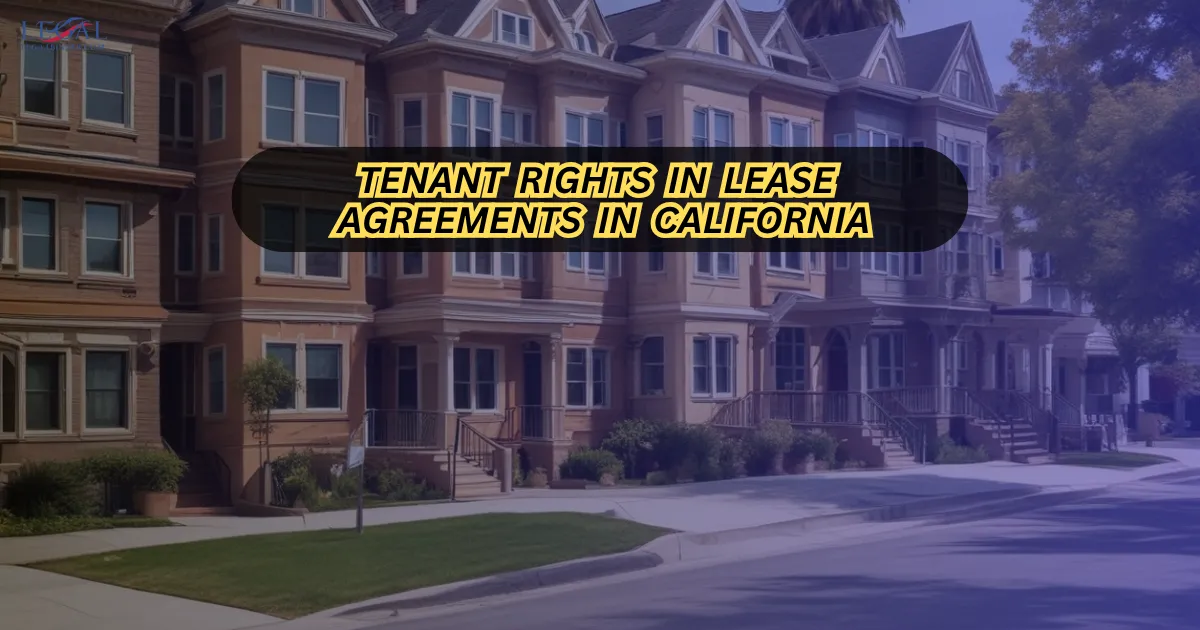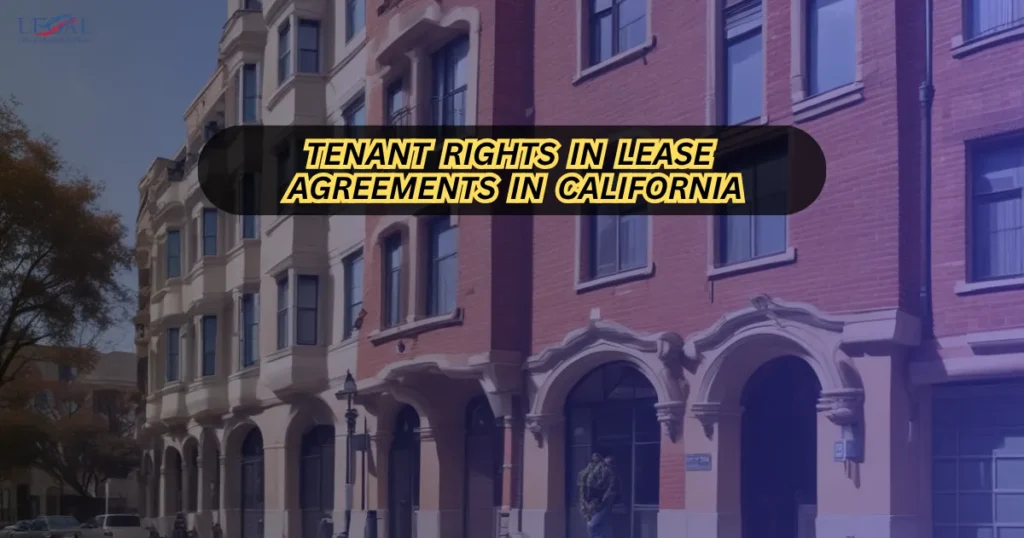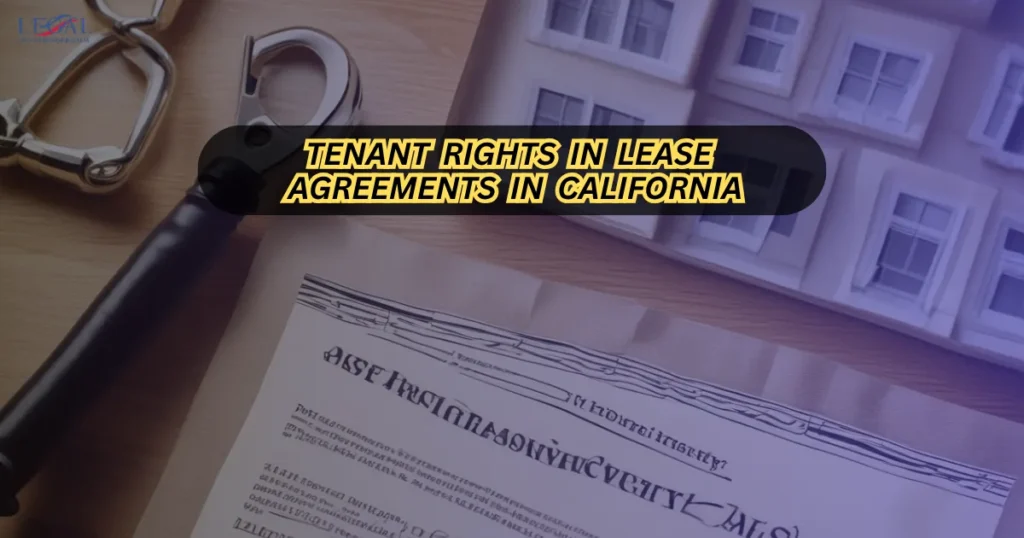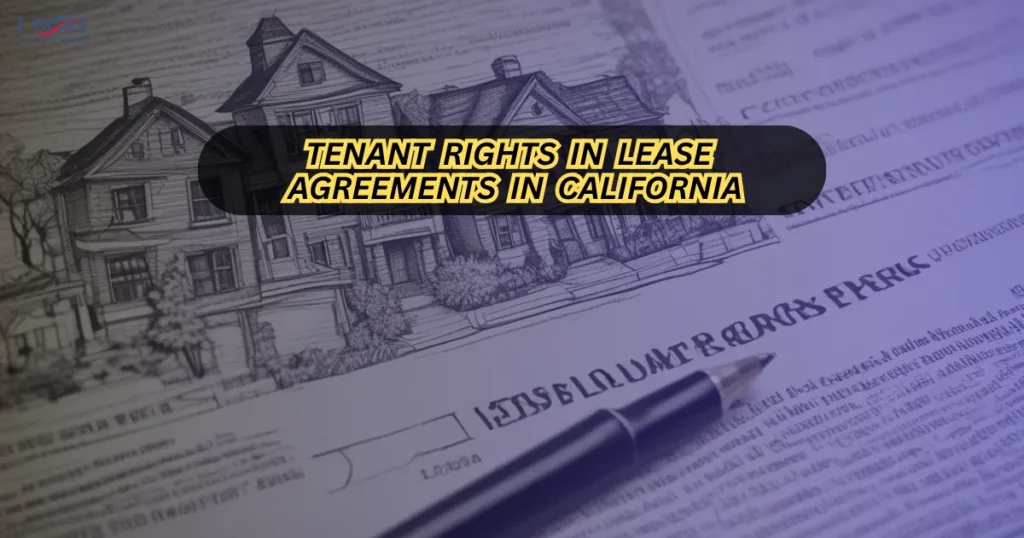Physical Address
304 North Cardinal St.
Dorchester Center, MA 02124
Physical Address
304 North Cardinal St.
Dorchester Center, MA 02124

Tenant rights in lease agreements in California are not just paragraphs in a legal document—they are your safeguard against unfair treatment, unsafe conditions, and unexpected surprises during your rental journey. Whether you’re moving into your very first apartment or renewing a lease after years in the same home, knowing your rights means living with peace of mind.

Consider this: You move into your dream apartment, only to find months later that your landlord is attempting to change terms without your consent—or ignoring urgent repair requests. In a state like California, which is home to some of the nation’s most protective tenancy laws, understanding your rights is your first line of defense. Without that knowledge, you could unknowingly give up benefits, safety, and financial security that the law guarantees you.
This guide covers the most important tenant rights you have under California law—helping you navigate your lease agreement with confidence and security.
For more landlord-tenant legal resources, visit our homepage.
Lease agreements in California are governed by a combination of state statutes, local rent control ordinances, and sometimes federal regulations. While each agreement is unique, several fundamental protections apply to nearly all tenants:
Official resources for tenant laws:
Under California Civil Code §1941.1, landlords must provide safe, sanitary, and livable housing. This includes working plumbing, heating, electrical systems, and a roof that doesn’t leak.
California law limits security deposits to two months’ rent for unfurnished rentals and three months for furnished. Landlords must return deposits within 21 days of move-out, minus allowable deductions with an itemized statement.
The California Civil Rights Department enforces anti-discrimination laws, protecting tenants against unfair treatment based on race, religion, gender, family status, disability, or other protected categories.
Landlords must provide at least 24 hours’ notice before entering a rental unit, except in emergencies.
Rent increase notice requirements depend on the percentage increase and local rent control laws. AB 1482 limits yearly rent increases in many situations.

Tenants have the right to request necessary repairs, and landlords must address these within a reasonable time frame.
Many California cities have local rent control ordinances that provide additional tenant protections beyond state law.
State law requires landlords to have “just cause” for eviction in many circumstances where tenants have lived there more than a year.
Tenants may withhold rent or repair and deduct in specific cases defined by law.
Unconscionable or illegal lease clauses are unenforceable under California law.
Landlords must disclose known lead-based paint hazards, presence of toxic mold, or certain pest control treatments.
Victims of domestic violence, sexual assault, or stalking have specific rights to terminate a lease early without penalty.
No lease can waive your basic statutory rights—even if you sign it.
Ask for written clarification of unclear terms before signing.
Always retain a copy of your signed lease and all communications with the landlord.

Can my landlord raise the rent at any time?No—landlords must follow state notice laws and local rent control limits where applicable.What if my landlord refuses to make repairs?You may be able to withhold rent or repair and deduct within legal guidelines.Can my landlord enter without notice?Only in emergencies; otherwise, 24-hour written notice is required.What happens to my security deposit?It must be returned within 21 days after you move out, minus valid deductions.
Your lease agreement is not just paper—it’s a shield that protects your home, your finances, and your future. Knowing your tenant rights in lease agreements in California ensures you can stand up for yourself, avoid exploitation, and enjoy your rental experience in peace.
Whether you’re signing a new lease or reviewing an existing one, take the time to understand your protections under state and local law. Knowledge is your most powerful tool in creating a secure and respectful landlord-tenant relationship.
To learn more about California housing laws and lease guidance, visit our home page.